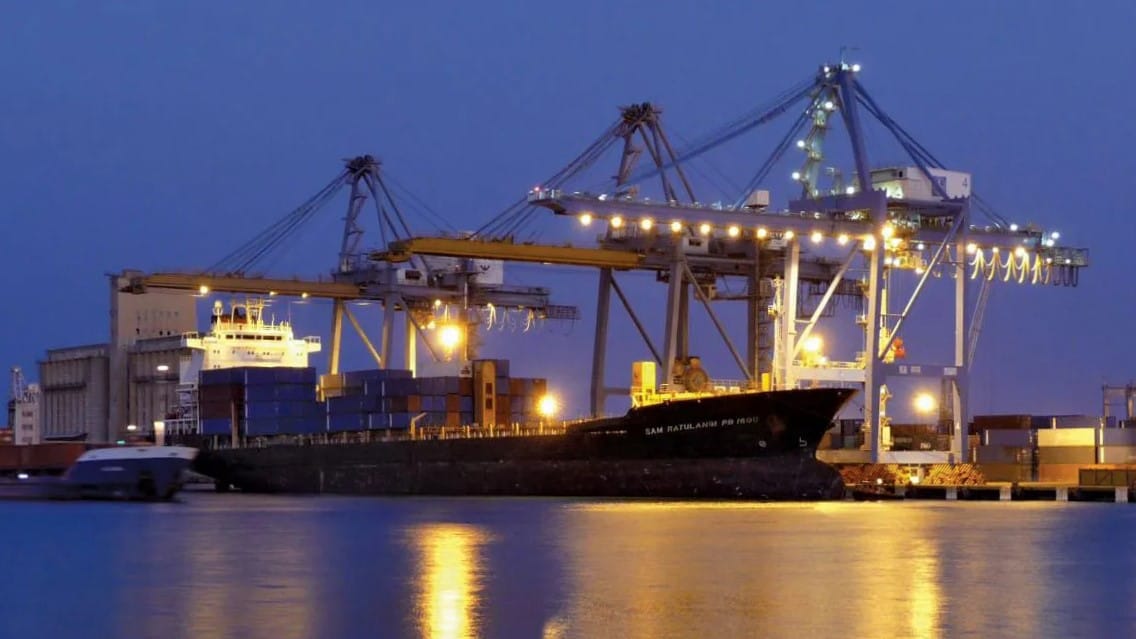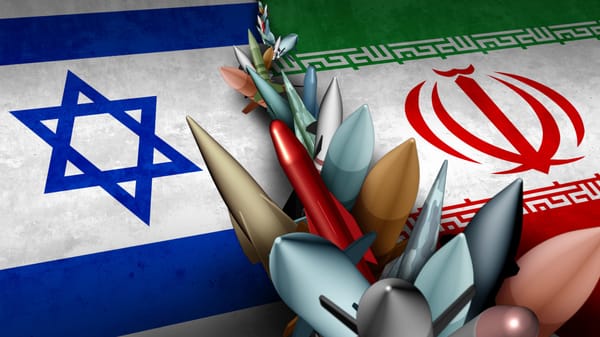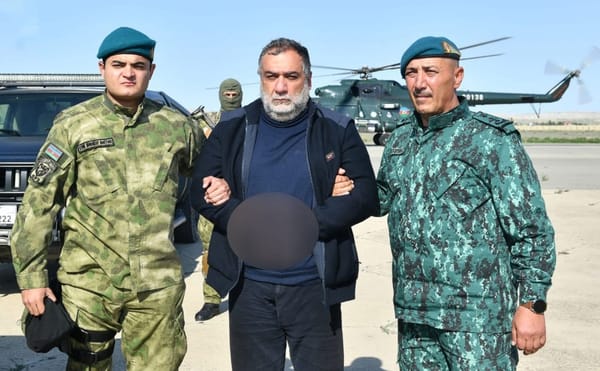Is a Spoon Useful for a Cold Meal? Or Why Does Russia Need a Military Base in Sudan?

Russia has finally secured a base on the Red Sea. But does it still need one? The statement made by Sudanese Foreign Minister Ali Yusuf Ahmad al-Sharif on February 12, announcing that an agreement had been reached with Moscow to establish a Russian naval base on the Red Sea, was as surprising to me as it was to many others. Why has a long-failed and seemingly abandoned project suddenly been revived and thrust back into the global spotlight with renewed urgency?
Who’s Who?
First, let’s clarify who exactly A. al-Sharif is. Officially, he is presented as the Sudanese counterpart of Sergey Lavrov. However, this is only partially true. In reality, he represents only the so-called Transitional Government of Sudan, which is entirely controlled by the Sudanese Armed Forces (SAF) under the leadership of General Abdel Fattah al-Burhan. This political entity does not even control the “traditional” capital of its own country—Khartoum.
Due to a devastating civil war that has been raging for nearly two years, al-Burhan's government has been pushed primarily to the northeast of Sudan and has, therefore, been forced to relocate its administrative center to the coastal city of Port Sudan. As a result, the "government" represented by al-Sharif, who was received in Moscow by Lavrov, effectively controls only a limited part of Sudanese territory, including the Port Sudan region—precisely where the promised Russian naval base is supposed to be located.
However, what should be of much greater interest to a Russian audience is not so much al-Burhan's government, but its adversaries—led by the notorious war criminal Mohammed Hamdan Dagalo. These are the forces that drove the once-powerful Sudanese military faction into a remote coastal enclave, despite its role in toppling the bloody dictator Omar al-Bashir in 2019.
During my tenure as a Russian diplomat in Khartoum (2014–2018), we referred to them as the Rapid Support Forces (RSF). At least, that was the designation used in all the encrypted diplomatic cables I personally archived—messages sent by diplomats and intelligence officers to Moscow through secure channels. However, based on recent publications on the official website of Russia’s Ministry of Foreign Affairs, Moscow now prefers to call them Rapid Reaction Forces (RRF)—despite the fact that their original Arabic name has not changed, and our initial translation was actually closer to its true meaning.
So, what exactly are these so-called Rapid Reaction Forces (for clarity, we will adhere to the Russian MFA's current terminology)? The similarity of this term to the names of special units within institutional state security structures should not be misleading. In reality, this is simply a very large, unofficial paramilitary group, composed of numerous light mobile infantry units using pickup trucks—vehicles favored by Middle Eastern and African terrorist groups. Perhaps the closest analogy familiar to Russians would be Yevgeny Prigozhin’s Wagner Group.
The RRF were created in 2013 from Arab Islamist nationalist militias that were personally loyal to then-President Omar al-Bashir. These groups, collectively known as the Janjaweed, gained infamy in the early 2000s for committing horrific atrocities during the genocide of the black African population in Darfur. Very quickly, they evolved into an unofficial personal guard for al-Bashir, effectively forming an independent branch of power within the Sudanese state. They also secured control over key economic resources—most importantly, gold.
However, due to international sanctions imposed on al-Bashir and Sudan for crimes in Darfur, Sudanese gold could not be legally sold abroad. At that moment, an African war criminal found an ally in his Russian counterpart—who, after the illegal annexation of Crimea in 2014, was also facing increasing international isolation.
Russian entities linked to Prigozhin’s Wagner Group became actively involved in Sudan’s gold extraction and export, helping Khartoum bypass international sanctions and ensuring lucrative profits for all parties involved. Additionally, Russian mercenaries trained personnel from specific RRF and Sudanese army units, supplied them with weapons and ammunition, and conducted influence campaigns aimed at fostering anti-Western sentiment in Sudanese society. Unfortunately, as part of my official duties as a press attaché at the Russian embassy, I was also required to participate in these efforts—publishing articles in the local press condemning the colonial past of European nations and giving interviews on Sudanese television that favorably portrayed “Russian-Sudanese cooperation,” which essentially boiled down to personal dealings between Putin and al-Bashir.
Thus, in the late 2010s, both power usurpers found it highly beneficial to work together. It was at this time that Moscow began formulating the idea of establishing a naval base on the Red Sea—one of the world's key maritime trade routes. However, these plans initially faced trust issues between the two dictators, particularly due to Moscow’s support for Marshal Haftar in Libya. Haftar had incorporated members of Darfur’s rebel movements—opponents of al-Bashir—into his ranks.
And then, al-Bashir was overthrown...
The Revolution Never Ends!
The fall of Omar al-Bashir’s regime in April 2019 and the rise of a coalition government composed of Sudanese military leaders and civilian reformers, who initially proclaimed a move toward democratization and comprehensive reforms, put the question of a Russian naval base on hold.
There was a noticeable sense of optimism within Sudanese society. Many members of the Sudanese intelligentsia, with whom I remained in contact while stationed on my next diplomatic assignment in Algeria, anticipated a swift normalization of relations with European countries and the United States. Many Sudanese political exiles were preparing to return home.
The prospects for political transformation suddenly opened before one of Africa’s richest and most beautiful countries seemed so vast and promising that no one paid much attention to the former friends of the ousted dictator. The reluctance to continue developing relations with Moscow was understandable. The new Sudanese authorities were uncertain whether ties with Russia would help alleviate U.S. sanctions pressure or improve relations with the wealthy Arab monarchies of the Persian Gulf.
However, in October 2021, Sudanese military leader Abdel Fattah al-Burhan decided that power was not something to be shared with civilian reformers. He staged another coup, consolidating all authority in his hands. Sudan’s brief democratic experiment was abruptly halted. At that moment, Putin’s Russia, recognizing in Khartoum the familiar and comprehensible face of yet another power usurper, began actively building relations with Sudan’s “new al-Bashir.”
For a year and a half after seizing control, al-Burhan diligently worked to solidify his emerging dictatorship—until he encountered resistance from a long-time associate of the overthrown al-Bashir: Mohammed Hamdan Dagalo. Throughout this time, Dagalo continued to command the Rapid Support Forces (RSF) and profited handsomely from his connections with Prigozhin’s Russian networks—Wagner Group, as well as the companies Meroe Gold and M-Invest, which enabled him to launder sanctioned Sudanese gold through Emirati exchanges.
By the spring of 2023, tensions between the two factions over power-sharing in Sudan had reached a breaking point. Al-Burhan attempted to force the RSF to integrate into his regular Sudanese army, but in response, Dagalo launched an armed uprising on April 15, 2023, right in the heart of the capital. Within days, his forces had seized the presidential palace, multiple ministry buildings—including the Ministry of Defense—Sudan’s central television headquarters, the airport, and several other strategically important sites.
The Sudanese army, unable to control the situation, resorted to desperate but futile measures—bombarding Khartoum from aircraft and shelling it with artillery. During those days, my Sudanese friends sent me a video of what remained of the magnificent Al-Nasr residential complex, where my family and I had lived during my service in Sudan. Our eldest son, Adrian—who still remembered those places and sometimes even asked to return to Khartoum, which he remembered as a bright and joyful city—watched in shock as lifeless ruins, riddled with bullet holes and shrouded in smoke, appeared on my phone screen.
These events marked the beginning of the brutal civil war that continues in Sudan to this day. From its outset, the conflict placed Moscow—long accustomed to backing only the official ruling power—into a difficult predicament: the need to maintain an economic base for continued engagement with the RSF while simultaneously upholding an official diplomatic position of support for Sudan’s "legitimate" government. Yet, despite its usual rigidity, Russian diplomacy seems to be handling this challenge with surprising adaptability, demonstrating an uncommon flexibility in diversifying its ties. If successful, this strategy could allow Moscow to maintain influence over one of Africa’s key nations, regardless of the conflict’s outcome.
Analyzing Russian officials' statements on Sudan over the past two years, one can see how carefully Moscow has sought to maintain dialogue both with al-Burhan’s military government—entrenched in Port Sudan—and with Dagalo’s warlords, who effectively control the capital, Khartoum. It is a cynical yet, in its own way, effective policy—weakening, plundering, and subjugating Sudan by using the Sudanese people themselves as the instruments of their own destruction.
Who Outplayed Whom?
The prospect of a Russian naval base in Sudan has long been a source of concern for many Western observers, particularly in the United States. Unsurprisingly, one of the first to comment on the news of Russia’s possible establishment of a naval base on the Red Sea was former influential U.S. diplomat Cameron Hudson. According to him, the Trump administration should respond decisively to prevent Sudan from becoming a hub for terrorism and to spare the country the fate of Somalia or Libya. In his view, the growing influence of Russia and Iran in the region poses a severe risk of destabilization.
However, Hudson’s calls for Trump to consider even a "military option" to make Sudan understand the mistake of its agreement with Moscow may fail to account for the fact that Washington’s approach to Sudan may have shifted under Joe Biden. Indeed, given today’s widespread speculation about a possible “new Yalta”—secret agreements between world leaders, including the presidents of the U.S. and Russia—why shouldn’t we consider the possibility that the Kremlin was tacitly allowed to act more freely in Africa in exchange for staying out of other geopolitical matters? For instance, in the Middle East, where Trump has already announced his ambition to take control of Gaza. Of course, there is no confirmation of such a theory, even if it were true. However, the recent dynamics of international affairs leave room for the possibility that Moscow might have agreed to hand over the Palestinian issue to the U.S. and withdraw support for Hamas in exchange for strengthening its position in countries where Wagner Group had previously been active.
It is also possible that Sudan’s current leader, al-Burhan, could have personally pushed for the establishment of a Russian naval base, which was previously blocked by the ousted dictator al-Bashir. At the very least, from al-Burhan’s perspective, creating a Russian strategic asset on the territory he controls would serve as a counterbalance to Moscow’s close ties with his enemies in Sudan’s civil war—a move that would appear at least logical in the current circumstances.
That said, Russia’s sudden naval breakthrough could have a variety of explanations. The only thing that seems absolutely clear at this moment is that the announcement of a Russian naval base in Sudan is widely perceived as a major diplomatic victory for Vladimir Putin’s regime—and this is hard to dispute. The Kremlin has demonstrated that, despite its ongoing war in Ukraine and the pressure of international sanctions, it has managed to expand its military presence in a strategically crucial region.
For those who have been anticipating Russia’s imminent defeat, this development serves as a reminder that, in the realm of foreign affairs, Moscow retains the ability to negotiate and maneuver—at least for now.
A Suitcase Without a Handle?
Although all agreements for the creation of a Russian naval base on the Red Sea now appear to be finalized, it remains unclear what practical benefit this facility will bring to Russia, given the current state of its navy and the overall pressure from the West. After devastating Ukrainian strikes on the Black Sea Fleet, Russia has lost its ability to freely deploy large naval forces over long distances. The situation is further complicated by the dire condition of its commercial fleet, which is struggling under sanctions. Thus, it is entirely possible that constructing a Russian base on the Sudanese Red Sea coast will prove to be far easier than its long-term maintenance, operation, and defense.
The long-awaited announcement made by A. al-Sharif may seem like good news for Russian naval forces, but in reality, it appears hopelessly overdue. A few years ago, such a base could have been a major strategic and propaganda asset, strengthening Russia’s presence in one of the world’s most critical maritime corridors. However, by the third year of Russia’s grueling war in Ukraine, the situation has changed dramatically. The severe depletion of naval resources and the overall decline of Russian maritime capabilities make this distant naval venture highly questionable.
Adding to the uncertainty are questions about the economic feasibility of the project. Even if the base becomes operational, its upkeep will require significant funding and logistical efforts—resources that the Kremlin is already struggling to allocate elsewhere. Why divert scarce resources to the Red Sea? What mission will this base serve? The Kremlin itself likely lacks clear answers to these questions. As a result, this once coveted "trophy" for Russia may prove to be a dubious achievement in the medium term.
For Sudan, however, the consequences of yet another Russian geopolitical maneuver are likely to be dire. The militarization of the Red Sea coast will hardly bring the country its long-awaited peace. Instead, it will almost certainly prolong the civil war and worsen the already catastrophic humanitarian crisis.
You can download the text of this article in Russian at the link below.
This article is also published in other media.







